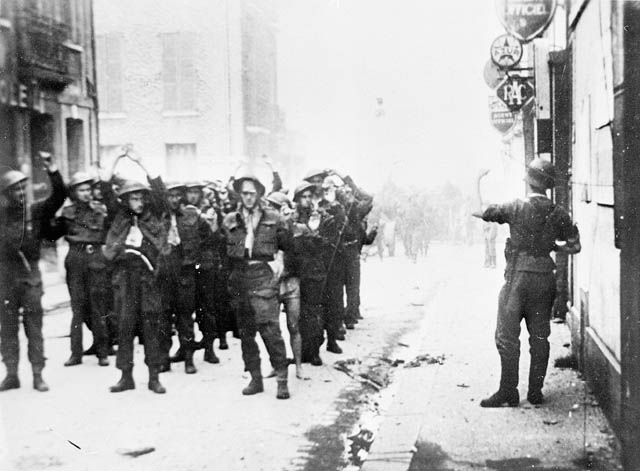The following article is an editorial written by The Canadian Encyclopedia staff. Editorials are not usually updated.
The 1942 Allied raid on the French port of Dieppe was a failure and a tragedy. Canadians bore the brunt, with 916 men killed and 1,946 taken prisoner — a steep price to pay for critical lessons that would later serve the Allies well on D-Day .
Eager for action

By the summer of 1942, Canada had been at war with Germany for nearly three years, but its army had yet to see any action, except during the failed defence of Hong Kong . Thousands of fresh Canadian soldiers waiting in Britain were eager to get involved in the fight against Germany.
The British and Americans were fighting in North Africa, but the Soviet Union wanted them to invade Nazi-occupied western Europe, to ease the pressure on the Red Army holding back German forces in Russia.
The Allies weren't yet ready for a full-scale invasion of Europe. So instead they planned a raid – to probe German defences on the coast of France, and to test the Allies' ability to mount an amphibious assault against Adolf Hitler's "Fortress Europe." The small port town of Dieppe, on the English Channel, was the target.
Surprise! Tanks!

The raid, called Operation Jubilee, was risky. But none of the military planners — British, American or Canadian — imagined it would be such a terrible failure, with so much loss of life.
The planners believed the element of surprise would allow landing troops to overcome German defenders and occupy the town, before withdrawing. Little thought was given to the importance of air superiority, overwhelming firepower, and artillery support from naval warships.
Instead, strategists put their faith in the power of tanks. Tanks had spearheaded the German blitzkrieg across Europe in 1940. Two years later, tanks were seen as a decisive weapon in modern warfare.
More than two dozen tanks would land on Dieppe's beaches beside the infantry, and this, planners said, would make all the difference.
19 August

In the early hours of 19 August, a flotilla carrying about 6,000 Allied soldiers — nearly 5,000 of them Canadian — arrived off the coast of Dieppe. There was little artillery support from the small destroyers accompanying the assault fleet, nor did the Allies have command of the sky. German guns on the heights of the white cliffs surrounding the town compounded the problem.
Small Canadian contingents landed on the flanks of Dieppe, at the villages of Puys and Pourville, to knock out guns defending the main port. Struggling to come ashore amid heavy enemy fire, both groups failed.
The main assault force landed on the beach in front of Dieppe. It too was hit hard. Small groups of infantry made it off the beach and into the town, where they hunkered down until they were killed or forced to surrender.
Of the 29 tanks that tried to land, 27 made it to the beach, many becoming bogged down by the "chert" — the gravel-like rocks that make up Dieppe's beach — immobilizing the tanks by gumming up their tracks. Fifteen tanks did make it off the beach, but their guns were unable to destroy German fortifications.
Surrender

By 1 p.m. it was all over. More than 900 Canadians were dead and hundreds more wounded. The dead included several Canadian pilots engaged in fighter battles with the Luftwaffe, the German air force, above Dieppe. Several hundred British and American airmen, soldiers and sailors were also killed or injured in the fighting.
When the order was given to withdraw, fewer than half the Canadians who departed for Dieppe made it back to England. Among the survivors, 1,946 Canadians were taken prisoner.
Lessons
Dieppe was a humiliation for the Allies and a tragedy for those killed, seriously wounded or taken prisoner.
The raid erased the faulty notions of Allied war planners that surprise, and tanks, were enough to make a successful amphibious assault against occupied France. Two years later, the D-Day landings would be backed up by massive artillery support, dominance over the skies, and unrelenting, overwhelming firepower — three essential factors missing at Dieppe.

 Share on Facebook
Share on Facebook Share on X
Share on X Share by Email
Share by Email Share on Google Classroom
Share on Google Classroom





